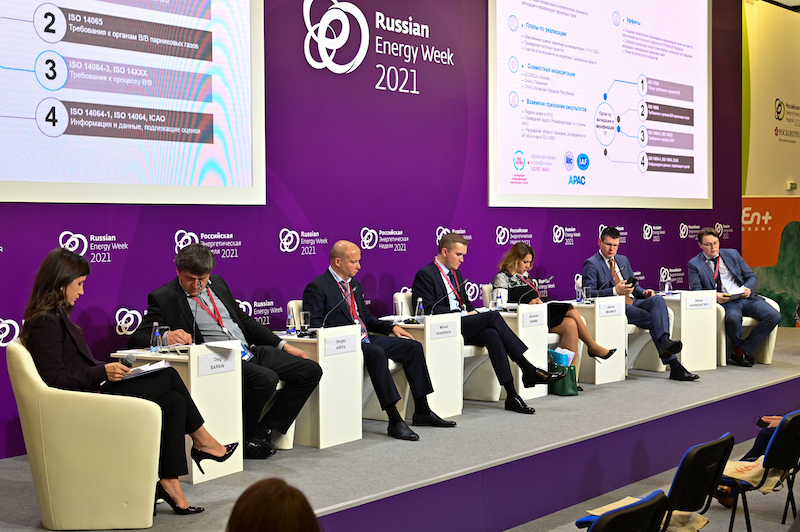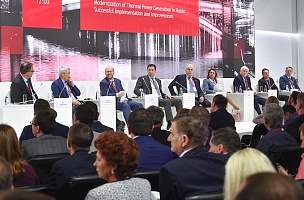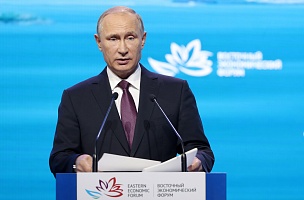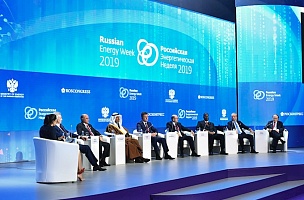KEY CONCLUSIONS
Countries need to work together and efforts need to be made to bring Russia’s national certification system in line with international practices
“One topic today is that of a national certification system. We support this, but it must be in line with international practices, and we must all endeavour to gain international recognition. If Russian certificates are recognized in the international certification system, everyone stands to win. We need to replace double reporting with another system, add some specific things, and open it up in order to compete on these markets,” Mikhail Khardikov, Head of Energy Business, En+ Group; General Director, Eurosibenergo.
“Communication between stakeholders and organizations, plus collaboration with governments, with states – overarching cooperation is needed to move towards sustainable development,” Vincent-Michel Duval, Executive Director, Director General, Global Sustainable Electricity Partnership (GSEP).
PROBLEMS
A large disparity in starting points from one country to the next with regard to the energy transition; geopolitical issues
“Many countries have assumed decarbonization responsibilities. <...> Each country is unique in its own right. Yes, we have a common goal – decarbonizing the energy sector, but we are proceeding from different starting points. For example, in the North we are talking about decarbonizing industry, while in Africa, 600 million people have no access to electricity. Clearly, there is a difference between countries in terms of the energy transition. There are different possibilities, and each country needs a specific form of support,” Vincent-Michel Duval, Executive Director, Director General, Global Sustainable Electricity Partnership (GSEP).
“Once you begin to appreciate that you are competing on the global market, a few important questions crop up. <...> It is simply not enough to promote yourself as a low-carbon or carbon-free enterprise. You need to confirm it, too. And this confirmation needs to be recognized on the international market for it to have meaning. Decarbonization is no longer just an economic issue, it is a geopolitical one, and it’s essential to be able to compete in international markets, to state one’s ambitions, and to ensure that the methodology used is in the interests of the national economy,” Mikhail Khardikov, Head of Energy Business, En+ Group; General Director, Eurosibenergo.
SOLUTIONS
Increasing hydropower’s share in the energy mix, and electrifying transport
“There are numerous hydropower plant projects. <...> We have stated that we are interested in the development of hydropower plants in Siberia. The potential of hydropower is yet to be fully tapped. We are looking at the construction of four large hydropower plants. We consider this to be the right approach. It will certainly be beneficial in terms of the country’s energy mix,” Mikhail Khardikov, Head of Energy Business, En+ Group; General Director, Eurosibenergo.
“The electrification of vehicles – if we want to electrify the industry – requires more transmission lines and greater hydropower potential,” Vincent-Michel Duval, Executive Director, Director General, Global Sustainable Electricity Partnership (GSEP).
Implementing strategic documents while getting all market participants to work together; protecting buyers of green certificates
“Hydrogen is a segment where we still have chances to make an early start, and instead of playing catch-up, work to become leaders in the field. [Companies – ed.] have come together and joined forces to develop an integrated strategic document for the country. It is called the Comprehensive Programme for the Development of Low-Carbon Hydrogen Power, and we are playing a key coordinating role in it. And the objective of this document, aside from everything else, is to set out specific goals and determine the technological resources which we could lead the way in, or at least localize right now, so as to not import foreign technology,” Denis Deryushkin, Deputy General Director – Head of Analytical Center, Russian Energy Agency of the Ministry of Energy of the Russian Federation.
“Today, we are again faced with the task of getting all participants working together to [build – ed.] a hydrogen unit market, and to do so at the start, on a voluntary basis. <...> According to our information, around 10 companies have confirmed their willingness to join us for the testing stage,” Alexey Khersontsev, State Secretary – Deputy Minister of Economic Development of the Russian Federation.
“The best from the proactive system should be transferred to a system which protects in general, and protects buyers of this [green – ed.] certificate. <...> This is so as to avoid duplication on the part of the producer, and to confirm that you were indeed the producer of electric power, and that it is a low‑carbon variant,” Andrey Maximov, Head of the Department of Electric Power Development, Ministry of Energy of the Russian Federation.
For more information, visit the Roscongress Foundation’s Information and Analytical System at roscongress.org/en.






